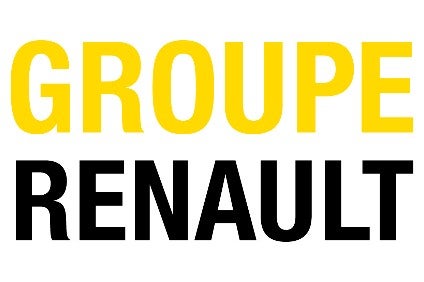
Following on from its 2018 unveiling of three concept cars as its “vision of the mobility of the future”, Renault Group has showcased new vehicles, partnerships and experiments for “the mobility of tomorrow”.
These include:

Discover B2B Marketing That Performs
Combine business intelligence and editorial excellence to reach engaged professionals across 36 leading media platforms.
- A car-on-demand service using autonomous electric Renault ZOE Cab prototype vehicles, as part of the Paris-Saclay Autonomous Lab project
- A first trial of the Renault EZ-FLEX last-mile delivery vehicle with Groupe La Poste
- An exploratory autonomous vehicle, the EZ-POD, as a first and last kilometre mobility complement
- A partnership with Klepierre to offer innovative mobility services in shopping centres
- A new TGV Inoui service, ‘Mon Chauffeur’, developed by groupe subsidiary Karhoo in partnership with SCNF Mobilites
At Viva Tech, the automaker demonstrated “four strategic areas of innovation that are key to transforming the industry”: electric mobility, connected mobility, autonomous mobility and new mobility services.
“The entire value chain, including vehicles, fleet management, mobility platforms and client applications needs to be expanded,” Renault said in a statement.
“At a time when mobility has never been a more crucial global issue, our role as a longstanding manufacturer of all types of vehicle is more important than ever. We have a responsibility to propose innovative solutions to address urban environment saturation and to stake out the smart city of the future. Alongside cities, start-ups, outstanding partners and public authorities, we see our leadership as a key part of a new history, the history of electric, connected, autonomous and shared mobility serving the public at large,” said group CEO Thierry Bollore.
Changing use patterns
The newly developed EZ-POD is an exploratory autonomous vehicle that can be used to provide first and last kilometre mobility.
The two-seat autonomous connected EV is small and highly agile to provide mobility within closed sites such as parking garages, hotels, shopping centres, campuses and in urban settings such as city centres, neighbourhoods and apartment complexes. It has adjustable speed and is designed for transportat over short distances as “complementary mobility for all”.
It was designed primarily as a robotised automated platform to provide first and last kilometre people transport but can also deliver goods.
Mobility and sharing
Renault said an increasing number of consumers – especially young people living in urban and suburban environments – are choosing to share rather than own cars so it supports the sharing economy and has begun to operate new urban mobility services.
In Paris, Renault and ADA launched a car sharing service with a fleet of free-floating electric cars, ‘Moov’in.Paris by Renault’, in 2018. Customers can use a dedicated app to book a Zoe or Twizy, particularly for very short trips.
In Madrid, Renault and Spanish infrastructure operator Ferrovial Servicio provide the Zity service, which gives users access to a fleet of 650 Zoes which can be used to travel anywhere, park free of charge and keep the vehicle during a stop (appointment, errand or movie). The group is using Zity “to test an ultra-flexible, standout service”.
Marcel, a service offered by VTC, a group subsidiary since 2017, has more than 2,000 drivers and the platform provides an all-electric service, ‘e.co’, which also uses a Zoe fleet.
In southern France, Renault Mobility opened its electric car sharing service in the greater Nice Cote-d’Azur region in 2019. The service rent out 57 Zoes 24/7 in four municipalities.
The Klepierre deal, announced on 13 May, is claimed to take Renault Mobility service to a new level: customers of these shopping centres will benefit from carsharing accessible via a mobile app. This experiment is starting in Val d’Europe (Paris region), Blagnac (Toulouse) and Begles Rives d’Arcin (Bordeaux) shopping centres and will be extended across France. The partners are also developing multi-use charging hubs for electric vehicles, to be known as ‘Charging Houses’. These stations will be installed by Renault group in shopping centre car parks located in high population density areas and will be used primarily by visitors during the day and residents at night and on weekends. The service will enter service in 13 French malls by the end of the year and will then be rolled out across Europe.
Tech support for new mobility services
Meanwhile, Karhoo – supported by the group since 2017 – brings together taxi, ride hailing and private hire vehicle companies on its international reservation platform which enables users to book, change, track and pay for trips everywhere in France and worldwide and is claimed to offer a broad choice of services.
So far, 1,500 fleets on six continents operating 1.8m vehicles have signed a Karhoo partnership agreement with Karhoo including the previously mention SNCF Mobilites TGV Inoui service Mon Chauffeur which travellers can use to automatically book a taxi or ride hailing vehicle for departure or arrival by train, throughout France.
Yuso, which joined the Flit Technologies Group in May 2018 and is financially supported by RCI Bank and Services, a subsidiary of the Renault-Nissan-Mitsubishi Motors alliance, is a dispatch management product for ride hailing vehicles, taxis and delivery companies and provides them with automated fleet and driver management.






